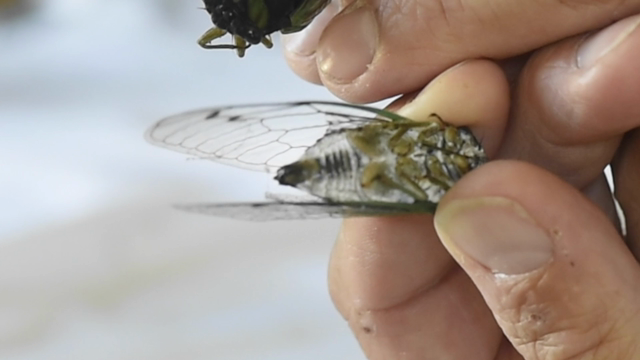
Brood X cicadas have arrived and are making themselves known, screaming in trees to attract a partner for their long-awaited mating season.
Brood X has been in the ground for 17 years, waiting for this summer to repopulate. And you'll be sure to hear it.
The life of a Brood X cicada ends quickly after they emerge. As long as things go according to plan, the bugs will be gone by the end of July.
Track Brood X:Cicada Safari app allows people to report and track Brood X cicadas

What is the life cycle of a cicada?
The cicada has the longest life cycle of any insect.
Periodical cicadas from Brood X have lived underground in wingless nymph form since 2004, about a foot or two down, feeding on sap from tree roots.
If the cicadas were human, they could drive but couldn't yet vote.
Cicada Swag: Get your cicada gear! Commemorate 2021 with these items
[ Keep up with Brood X's shenanigans with the Cincinnati.com app.]
Now that they're mature, the brood will emerge, where they'll spend two to four weeks in late May and early June courting, mating, flying, driving people crazy and being eaten by everything.
The adults will then lay their eggs in trees, which will hatch four to six weeks later.
After they hatch, the tiny nymphs fall to the ground and burrow into the soil in search of tree roots. There, they will use their piercing-sucking mouthparts to take sap from tree roots, entomologists with the University of Kentucky said.
By New Year's Day, the cicadas will be 10 to 12 inches deep in the ground, waiting 17 years to come back out.
Become an expert: Here's everything you need to know to be prepared for Brood X
When will the cicadas die?
If the weather is consistently warm and dry, the cicadas will finish their mating activities sooner than later, which would mean a shorter season.
Their lifespan is four to six weeks, and they will start to die off in late June into July.
The nymphs, however, will be hibernating and maturing for the next 17 years. We'll see Brood X again in 2038.
How loud are cicadas?
Periodical cicadas are known for their earsplitting sounds, which are produced by the male of the species to attract females.
Male cicadas contract ridged membranes on their abdomens to make the sound, which is amplified by their almost-hollow abdomens. Each species has its own sound, and the chorus can reach 90 to 100 decibels – as loud as a lawn mower, CicadaMania said.
[ Want more cicada content? Get a digital subscription for unlimited access to Cincinnati.com. ]
Source link









